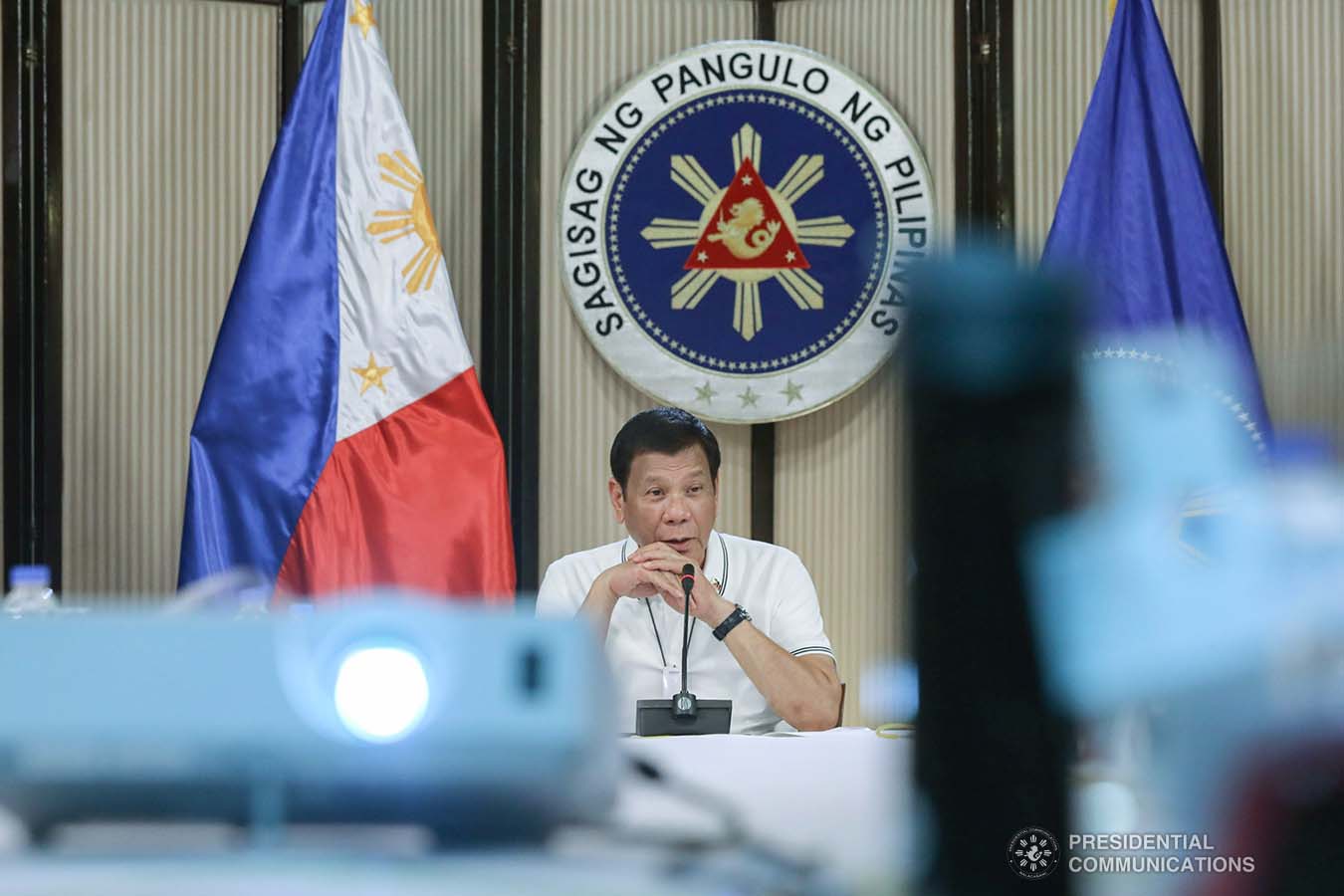
President Rodrigo Roa Duterte approved a recommendation Thursday extending the enhanced community quarantine (ECQ) in Metro Manila, Central Luzon and Calabarzon and other high-risk provinces until May 15, 2020, to stem the spread of coronavirus disease 2019 (COVID-19) in the country.
The President made the decision Thursday following a meeting with the Inter-Agency Task on the Management of Emerging Infectious Diseases (IATF-EID) in Malacanang.
In an announcement Friday morning, Presidential spokesperson Harry Roque said that aside from the three regions, Pangasinan, Benguet, Albay, Catanduanes and the Mindoro provinces will remain under ECQ.
The extension of ECQ in the provinces of Pangasinan, Benguet, Tarlac, and Zambales is still subject to re-checking and may still be revised by April 30, Roque said.
Antique, Iloilo, Cebu and Cebu City in the Visayas and Davao del Norte and Davao City in Mindanao will also be subjected for rechecking.
All provinces, not covered by ECQ with moderate risk from the virus, will be subjected for reevaluation. A decision will be made whether to put them under general community quarantine (GCQ) or remain under ECQ, according to Roque.
Provinces under GCQ may reopen certain areas in their labor sectors, which will be done in phases.
Also, under this condition, individuals aged 20 below as well as senior citizens under high health risk should stay home.
Malls covering non-leisure shops will be allowed to open and priority and essential construction projects could also resume, Roque said.
Non-workers will be permitted to go out to buy goods and avail services except those pertaining to sector category IV or leisure.
Public transport will be allowed to operate at reduced capacity and local government units (LGUs) were mandated to enforce night-time curfew for non-workers.
For the option to shift to GCQ in moderate to low-risk areas, the task force recommended 100-percent opening of agriculture sector including fishery, forestry, and food manufacturing as well as all supply chain involving raw materials packaging, food retails, supermarkets and restaurants.
Fifty to 100-percent opening of manufacturing sector was also recommended such as those engaged in electronics and exports, e-commerce and delivery for essential and non-essential items, repair and maintenance services, housing, and office services.
The IATF also considered up to 50 percent onsite work and 50 percent work-from-home for GCQ areas with moderate to low-risk. These include financial services, business process outsourcing (BPO), other non-leisure wholesale and retail trade, other non-leisure services.
With the President’s recent decision, Roque said the government will reprioritize the grant of cash assistance to households that remain under ECQ.
President Duterte placed the entire Luzon island under ECQ in mid-March to prevent the further spread of COVID-19. The restriction was supposed to lapse on April 13 but the President approved the proposal to extend it until April 30. PND

